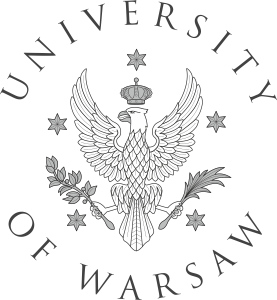Dr Katarzyna Bandyra awarded the EMBO Installation Grant
19 stycznia 2022
“Mitochondria are essential organelles that provide cellular metabolic power through oxidative phosphorylation necessary for the organism to function and reproduce. In human, any malfunction of these organelles results in various disorders,” says Dr Katarzyna Bandyra from the Faculty of Chemistry, and the Biological and Chemical Research Centre, University of Warsaw. As an EMBO Installation Grantee, Dr Bandyra will research the role of PNPase in human mitochondria.
More than 1,800 leading life scientists are members of the international European Molecular Biology Organisation. The major goals of the organization are to support talented researchers at all stages of their careers, stimulate the exchange of scientific information, and help build a European research environment where scientists can achieve their best work.
EMBO Installation Grants support group leaders establishing independent laboratories in countries participating in the scheme to strengthen the life sciences there. Recipients of an Installation Grant are integrated into the EMBO Young Investigator Network. As a result, they benefit from the extensive networking opportunities and practical support. Grants are available in the Czech Republic, Poland, Portugal and Turkey.
Names of life scientists awarded EMBO Installation Grants were announced on 19th January. Dr Katarzyna Bandyra from the Faculty of Chemistry, and the Biological and Chemical Research Centre, University of Warsaw, is one of the six grantees. In her research she investigates protein complexes by cryo-electron microscopy.
PNPase in human mitochondria
Dr Bandyra has received the Installation Grant for her project under the title “Towards understanding of the mitochondrial RNA transport and metabolism”. The aim of the project is to understand the role and function of the mitochondrial enzyme PNPase in humans.
According to Dr Bandyra “Mitochondria are essential organelles that provide cellular metabolic power through oxidative phosphorylation necessary for the organism to function and reproduce. In human, any malfunction of these organelles results in various disorders, such as neoplasm, neurodegeneration or inflammation”.
Due to the limited coding capacity of their genomes, mitochondria have evolved mechanisms to import nucleus-encoded proteins required to support their activities. One such protein in humans is hPNPase, a highly conserved exoribonuclease residing mostly in the mitochondrial intermembrane space, where its function is poorly understood. Bacterial PNPase, which is a close homologue of the human enzyme, was recently shown to switch activity from an RNA degradation mode to a stabilising role for specific types of RNA when complexed with an RNA chaperone. As the human and bacterial enzymes are highly similar in sequence and structure, it is possible that hPNPase could have a dual mode of action as well, and could participate in RNA-mediated processes once trapped in the non-degradative assembly.
“The research I would like to undertake will address why hPNPase is present in the intermembrane space of the human mitochondria and identify the functional roles played by the enzyme in that compartment. I will characterise the full-length enzyme biochemically and structurally, and investigate its capacity to bind substrates in the degradative and non-degradative modes. Subsequently, I will search for PNPase protein partners and RNA substrates using complementary pull-down and fractionation techniques in order to identify potential hPNPase ternary complexes,” explains Dr Bandyra.
The study results will illuminate the biological role of PNPase in human cells and determine if the enzyme is competent to act in hypothetical, long-disputed mitochondrial RNA trafficking system. “In the future I would like to investigate crucial protein-RNA complexes critical for human health, and will use cryo-EM as one of the main research tools to elucidate the structures of such assemblies,” says the grantee.
The project “Towards understanding of the mitochondrial RNA transport and metabolism” started in January to be completed within three to five years. Dr Katarzyna Bandyra has received funding of € 50,000 per year. She has also become part of the EMBO Young Investigator Network to gain access to a range of training and networking opportunities.
The list of the EMBO Installation Grantees is available online >>
Dr Katarzyna Bandyra graduated from the University of Warsaw majoring in molecular biology. She completed her PhD studies at the University of Cambridge. In 2021, she came back to Poland with Marie Skłodowska Curie Actions Widening Fellowship (Horizon 2020) as well as POLS and SONATA grants (NCN and Norway Grants) to investigate her own project using cryo-EM and to help Polish scientists to implement this method in their research. Her research focuses on RNA, its versatility and functionality, as well as on RNA-binding proteins.
Source: www.en.uw.edu.pl

